|
Books Should Be Free Loyal Books Free Public Domain Audiobooks & eBook Downloads |
|
|
Books Should Be Free Loyal Books Free Public Domain Audiobooks & eBook Downloads |
|
Short Stories |
|---|
|
Book type:
Sort by:
View by:
|
By: William Dean Howells (1837-1920) | |
|---|---|
 Staccato Notes of a Vanished Summer (from Literature and Life)
Staccato Notes of a Vanished Summer (from Literature and Life)
| |
By: Carl Sandburg (1878-1967) | |
|---|---|
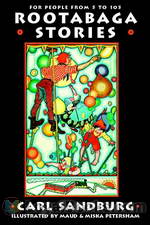 Rootabaga Stories
Rootabaga Stories
Carl Sandburg is beloved by generations of children for his Rootabaga Stories and Rootabaga Pigeons (which is not in the public domain), a series of whimsical, sometimes melancholy stories he originally created for his own daughters. The Rootabaga Stories were born of Sandburg’s desire for “American fairy tales” to match American childhood. He felt that the European stories involving royalty and knights were inappropriate, and so populated his stories with animals, skyscrapers, trains, corn fairies, and other colorful characters. | |
By: Ernest Bramah (1868-1942) | |
|---|---|
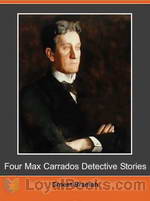 Four Max Carrados Detective Stories
Four Max Carrados Detective Stories
Ernest Bramah is mainly known for his ‘Kai Lung’ books – Dorothy L Sayers often used quotes from them for her chapter headings. In his lifetime however he was equally well known for his detective stories. Since Sherlock Holmes we have had French detectives, Belgian detectives, aristocratic detectives, royal detectives, ecclesiastical detectives, drunken detectives and even a (very) few quite normal happily married detectives. Max Carrados was however probably the first blind detective. | |
By: Bret Harte (1837-1902) | |
|---|---|
 Selected Stories
Selected Stories
Bret Harte (1837–1902) was an American author and poet, best remembered for his accounts of pioneering life in California. | |
 From Sand Hill to Pine
From Sand Hill to Pine
| |
 Mrs. Skagg's Husbands and Other Stories
Mrs. Skagg's Husbands and Other Stories
A collection of short stories set in the American West at the end of the 19th century. | |
 Under the Redwoods
Under the Redwoods
| |
 Legends and Tales
Legends and Tales
| |
 Tales of the Argonauts
Tales of the Argonauts
| |
 Tales of Trail and Town
Tales of Trail and Town
| |
 The Bell-Ringer of Angel's
The Bell-Ringer of Angel's
| |
 Condensed Novels: New Burlesques
Condensed Novels: New Burlesques
| |
 A Protegee of Jack Hamlin's and Other Stories
A Protegee of Jack Hamlin's and Other Stories
| |
 Stories in Light and Shadow
Stories in Light and Shadow
| |
 Urban Sketches
Urban Sketches
| |
 Mr. Jack Hamlin's Mediation
Mr. Jack Hamlin's Mediation
| |
 Openings in the Old Trail
Openings in the Old Trail
| |
 Drift from Two Shores
Drift from Two Shores
| |
 Trent's Trust, and Other Stories
Trent's Trust, and Other Stories
| |
By: Robert Barr (1849-1912) | |
|---|---|
 In a Steamer Chair and Other Stories
In a Steamer Chair and Other Stories
Thirteen short stories by one of the most famous writers in his day. Robert Barr was a British Canadian short story writer and novelist, born in Glasgow, Scotland. In London of the 1890s Barr became a more prolific author - publishing a book a year - and was familiar with many of the best selling authors of his day, including Bret Harte and Stephen Crane. Most of his literary output was of the crime genre, then quite in vogue. When Arthur Conan Doyle's Sherlock Holmes stories were becoming well known,... | |
By: Jacob Grimm (1785-1863), Wilhelm Grimm (1786-1859), and Andrew Lang (1844-1912) (1785-1863) | |
|---|---|
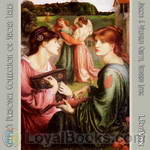 Personal Collection of Short Tales compiled by Carmie
Personal Collection of Short Tales compiled by Carmie
This is a selection of the fairy tales (in English) written by Jacob Ludwig Carl Grimm and Wilhelm Karl Grimm in the early 19th Century. These stories are fantastical and although aimed squarely at the flexible mind of a child which can assimilate much stranger concepts than an adult they are quite dark and occasionally brutal. The stakes can be quite high as in Rumpelstiltskin where a terrible bargain is made without due regard to possible future consequences and Tom Thumb who seems forever about to be imprisoned or sliced in two... | |
By: Sarah Cory Rippey | |
|---|---|
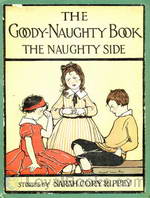 The Goody-Naughty Book
The Goody-Naughty Book
The Goody-Naughty Book was originally published as two books back to back. Opening the book from one end, the reader experiences “The Goody Side” where the children are polite and thoughtful. However, turning the book over and beginning from the other side, one reads “The Naughty Side” where the children are lazy and irritable. These short, moral stories teach children the proper way to behave and that there are consequences if they don’t. | |
By: Eva March Tappan (1854-1930) | |
|---|---|
 Makers of Many Things
Makers of Many Things
How are friction matches made? How do rags and trees become paper? Who makes the dishes on our tables? Published in 1916, this children's book explains the origins of everyday items in an entertaining and informative way. There are plenty of illustrations, so please feel free to read along. | |
By: Wilhelm Hauff (1802-1827) | |
|---|---|
 Tales of the Caravan, Inn, and Palace
Tales of the Caravan, Inn, and Palace
| |
 The Severed Hand From "German Tales" Published by the American Publishers' Corporation
The Severed Hand From "German Tales" Published by the American Publishers' Corporation
| |
By: Hans Christian Andersen (1805-1875) | |
|---|---|
 Little Mermaid
Little Mermaid
The Little Mermaid" (Danish: Den lille havfrue, literally: "the little sea lady") is a very well known fairy tale by the Danish author Hans Christian Andersen about a young mermaid willing to give up her life in the sea and her identity as a mermaid to gain a human soul and the love of a human prince. The tale was first published in 1837 and has been adapted to various media including musical theatre and animated film. But this tale is not the Disney version, all cleaned up and made pretty. This is the way Andersen wrote it... | |
By: Tom Godwin (1915-1980) | |
|---|---|
 The Nothing Equation
The Nothing Equation
| |
 Cry from a Far Planet
Cry from a Far Planet
| |
By: Joseph Lewis French (1858-1936) | |
|---|---|
 Masterpieces of Mystery In Four Volumes Mystic-Humorous Stories
Masterpieces of Mystery In Four Volumes Mystic-Humorous Stories
| |
 Masterpieces of Mystery, Vol. 1 (of 4) Ghost Stories
Masterpieces of Mystery, Vol. 1 (of 4) Ghost Stories
| |
 Masterpieces of Mystery Riddle Stories
Masterpieces of Mystery Riddle Stories
| |
By: John Charles Dent (1841-1888) | |
|---|---|
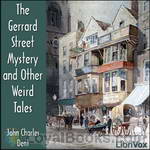 The Gerrard Street Mystery and Other Weird Tales
The Gerrard Street Mystery and Other Weird Tales
John Charles Dent, the author of the following remarkable stories, was born in Kendal, Westmorland, England, in 1841. His parents emigrated to Canada shortly after that event, bringing with them, of course, the youth who was afterwards to become the Canadian author and historian. Mr. Dent received his primary education in Canadian schools, and afterwards studied law, becoming in due course a member of the Upper Canada Bar. He only practised for a few years, then returned to England to pursue a literary career, writing mostly for periodicals... | |